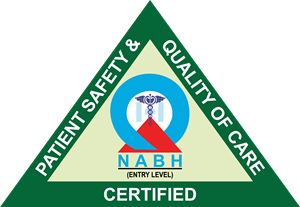Aerobic Exercises: The Heart’s Best Friend
Aerobic exercise is where you’re moving your body’s largest muscles, such as the ones in your arms and legs, in a way that makes you warm and slightly out of breath. Aerobic exercises are also known as cardiovascular exercises and are the cornerstone of heart health. These activities elevate your heart rate, promoting circulation and improving the efficiency of your cardiovascular system. Some excellent aerobic exercises include-
- Brisk Walking
- Running or Jogging
- Cycling
- Swimming
Benefits Of Aerobic Exercise?
Aerobic exercise helps your heart and circulatory system to work better, so you are more able to do daily tasks without getting tired or breathless. It can improve your emotional wellbeing and also improve your sleep pattern.
How Does Aerobic Exercise Help Prevent Cardiovascular Disease?
Aerobic exercise also lowers your risk of heart and circulatory diseases, and can help stop them getting worse by-
- Lowering your resting blood pressure and heart rate
- Improving your cholesterol levels
- Helping you keep to a healthy weight, which in turn reduces your risk of developing type 2 diabetes
- It also helps in controlling blood sugar.
How Much Aerobic Exercise A Week?
It’s recommended you do at least 150 minutes a week of moderate-intensity aerobic exercise. Moderate intensity means you feel warm and comfortably breathless. If you are new to exercise, build up gradually to 150 minutes. Start by doing five to 10 minutes each day. Listen to how your body feels the next day before doing more.
- Brisk Walking: An accessible and low-impact exercise, brisk walking is a fantastic way to get your heart pumping without putting excessive strain on your joints. It suits best to people with peripheral arterial disease (PAD), walking can be particularly helpful: you should see the pain in your legs lessen over time the more often you walk, so keep going despite the discomfort.
- Running or Jogging: For those seeking a more intense workout, running and jogging provide a powerful cardiovascular boost. Start at a pace that suits your fitness level and gradually increase intensity.
- Cycling: Whether you prefer outdoor cycling or stationary biking, this exercise is gentle on the joints while providing a solid cardiovascular workout.
- Swimming: A full-body workout that is easy on the joints, swimming engages multiple muscle groups and elevates the heart rate, making it an excellent option for heart health.
If you have heart failure, you may need to build up the amount of exercise you do more gradually.
Warming up before exercise and cooling down afterwards is important, for everyone, but especially if you have angina or chest pain. “If you get angina symptoms while being active, rest until they’re gone.
Strength Training: Building a Strong Foundation
Strength exercises – also known as resistance training – are designed to make your muscles work harder. While aerobic exercises are crucial, strength training should not be overlooked. Building muscle contributes to overall fitness and can aid in weight management, which is linked to heart health.
These could involve lifting weights or using resistance equipment such as bands or cables. But you can just use your own body weight. Perhaps start with moving from sitting to standing out of a chair, then progress to doing squats or press-ups against the wall
Who’s It For?
Everyone should do some form of strength training, but if you have certain heart conditions, such as heart failure, or have recently had surgery you’ll have to gradually build up your strength – chat with your health specialist before starting.
Weightlifting: Resistance training with weights or resistance bands helps build muscle, boost metabolism, and improve overall cardiovascular fitness.
If you’ve had heart surgery like bypass, in the first few weeks following surgery you should keep your elbows by your side when lifting any amount of weight, to reduce the strain on your chest, and don’t lift anything heavier than a half-full kettle.
Bodyweight Exercises: Squats, lunges, push-ups, and planks are effective bodyweight exercises that can be adapted to various fitness levels. They promote muscle strength and endurance.
If you’ve had an ICD fitted, for six weeks afterwards avoid lifting your arm above shoulder height on the side it was fitted (which will usually be the left arm).
People who have PAD should focus on strengthening the muscles where they experience symptoms – for example, if you get pain in your calf, then calf raising exercises could help.
As we get older, our muscles naturally lose strength, so it’s even more important to do resistance training.
High-Intensity Interval Training (HIIT): Maximizing Efficiency
HIIT involves short bursts of intense exercise followed by brief periods of rest or lower-intensity activity. This style of training is efficient and has been shown to improve cardiovascular health. Examples of HIIT exercises include-
- Sprints: Short, intense bursts of running or cycling followed by rest periods.
- Jumping Jacks: A simple yet effective way to elevate your heart rate quickly.
- Burpees: A full-body exercise that combines strength and cardiovascular components.



